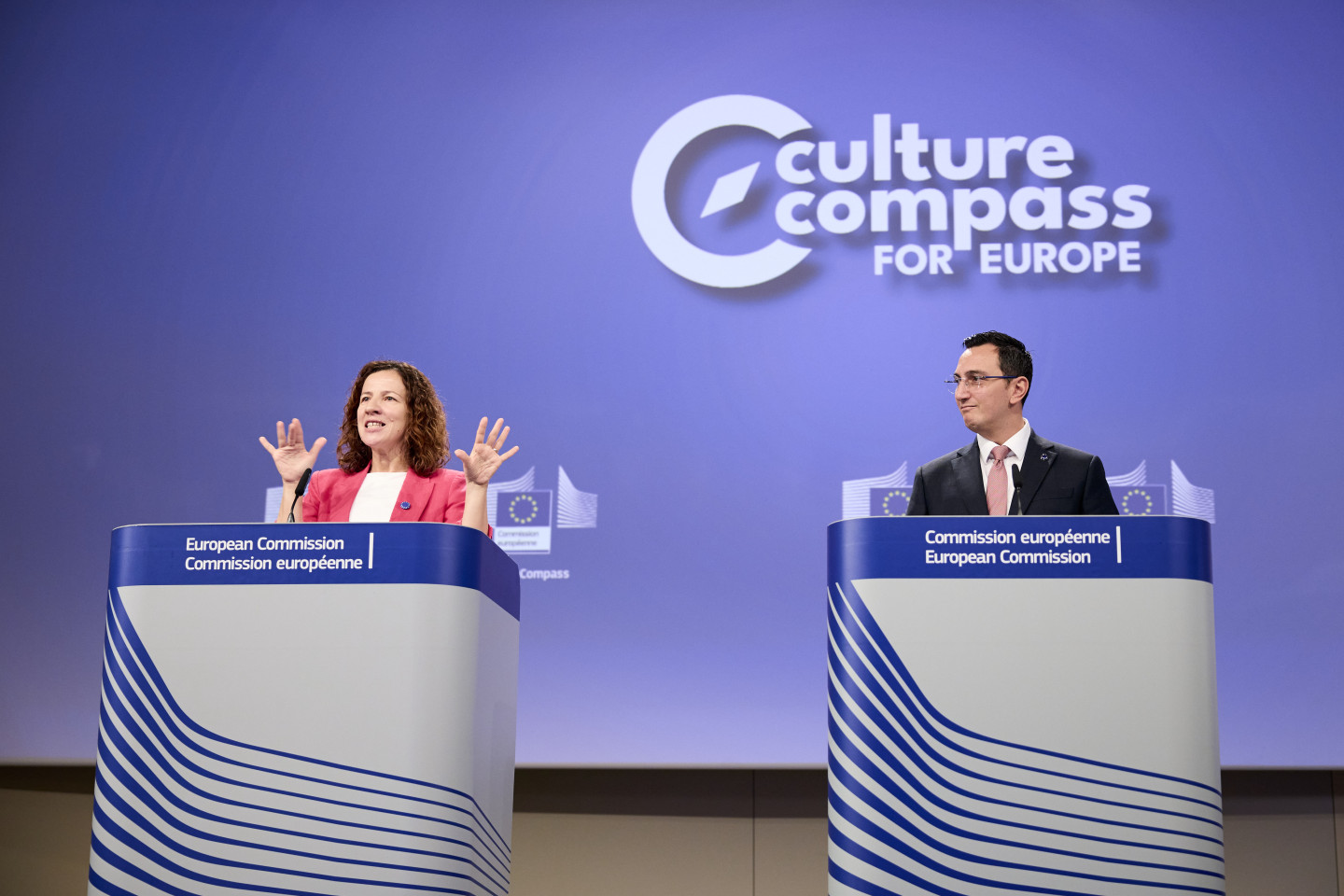

European Commission unveils Culture Compass for Europe with a focus on international cultural relations
The European Commission unveiled the Culture Compass for Europe, its vision for the European cultural landscape and a new strategic framework designed to guide the multiple dimensions of European cultural policy and programmes.


Glenn Micallef, European Commissioner for Intergenerational Fairness, Youth, Culture and Sport, outlined the overarching vision of the Culture Compass as “a Europe for culture, and culture for Europe” and stressed that “a society that invests in culture, invests in democracy, in peace and in resilience.”
Culture is the next strategic frontier for the European Union.
Commissioner Glenn Micallef
The proposed Culture Compass sets out to translate European values into 20 flagship actions, guiding EU policymaking across four key directions:
- Values and Rights - an EU that upholds and strengthens European values and cultural rights.
- Artists and People - an EU that empowers artists and cultural professionals and supports people.
- Competitiveness, Resilience, Cohesion - an EU that draws on culture and cultural heritage to become more competitive, resilient, and cohesive.
- International - an EU that champions international cultural relations and partnerships.
Find out more about the Culture Compass for Europe here.
--
EUNIC, alongside 30 other European cultural networks, contributed to a discussion paper led by Culture Action Europe, which proposed a complementary vision for the Culture Compass. In this paper, EUNIC called for a more strategic, coherent, and long-term approach to embedding international cultural relations in the EU’s external action.
Throughout the consultation process on the Compass, EUNIC has proactively advocated for international cultural relations at every turn. EUNIC was quoted by Commissioner Micallef in his presentation as having been one of the organisations supporting and advocating on the compass from the start. We are pleased to see that the fourth direction focuses on international cultural relations and that EUNIC is mentioned explicitly as key partner on this key pillar.
Here, the Commission recognises the European Spaces of Culture programme as having "shown that co-created, locally rooted cultural initiatives can strengthen mutual understanding and generate lasting impact" and states that it will "continue its close cooperation with the EU National Institutes for Culture network to further international cultural relations."
Under this section, the Commission announces the delivery of a new EU international cultural relations strategy, leveraging the "Team Europe" approach for culture to deepen partnerships worldwide. The Compass also includes a proposed Euro-Med initiative for culture, sport, and tourism, and a new phase of the EU4Culture programme in the Eastern Neighbourhood.
Culture connects people across borders, inspires dialogue, trust, and peace.
Commissioner Glenn Micallef
Commissioner Micallef stated that the Culture Compass will be implemented by mobilising both existing and future funding mechanisms at all levels, with plans to double the budget for culture in the next Multiannual Financial Framework (MFF). The Commission will also explore additional funding avenues, including private investment, philanthropy, and public-private partnerships, to ensure Europe’s cultural sectors remain competitive and resilient.
Going forward, the Commission will work with the European Parliament and the Council to co-sign the proposals. EUNIC will continue to monitor developments and work closely with Culture Action Europe to assess how the proposed Culture Compass aligns with the vision outlined by fellow European cultural networks in the Sector Blueprint discussion paper.
